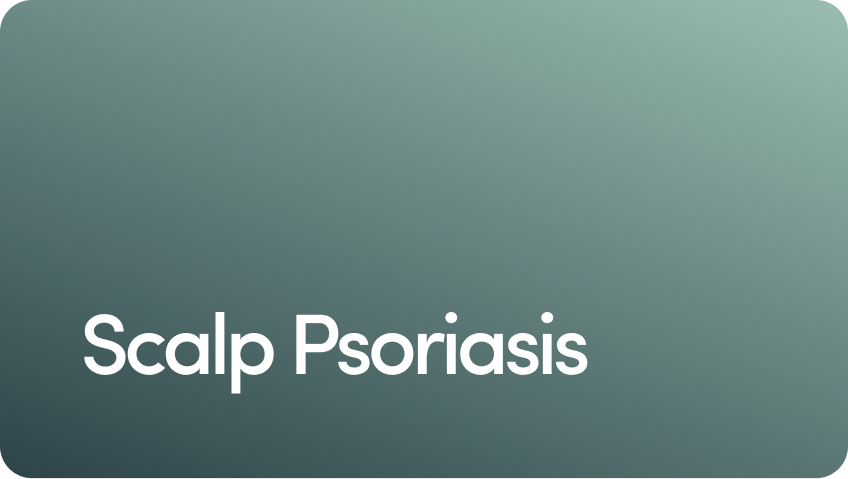Content
Thicker, fuller hair you'll love
Hair Mask for Hair Loss: Does It Work?

Reviewed by Sara Harcharik Perkins, MD
Written by Jill Seladi-Schulman, PhD
Published 06/22/2022
Updated 04/30/2025
If you’ve ever searched online for information about female hair loss, there’s a good chance you’ve come across recommendations for hair masks.
Hair masks are formulated to moisturize the scalp and supply nutrients to the hair shaft and hair follicles. Some may even help repair hair damage. But is a hair mask for hair loss too good to be true?
There’s very little evidence that hair masks help treat hair loss. So, if you’ve been scouring the internet for phrases like “hair mask for thinning hair“ or “scalp mask for hair growth,“ you may be out of luck. However, evidence-based treatments for hair loss are available.
We’ll cover what hair masks are and go over the benefits they can offer for your scalp and hair. We’ll also explain why hair loss happens in women and share science-backed options for treating hair loss you may want to consider if you have thinning, shedding, or other common hair issues.
Content
What Are Hair Masks?
Hair masks are a diverse range of store-bought products and homemade formulations meant to be applied to hair like conditioner, then rinsed out.
Most masks are designed to be used once or twice a week to treat dry, frizzy hair or hair that has chemical damage due to bleach or other hair treatments.
Hair masks work similarly to deep conditioners in that they have higher concentrations of active ingredients compared to typical hair conditioners.
And while many conditioning treatments are applied for just a few minutes, a hair mask may sit on your head for anywhere from 15 minutes to an hour or longer. This allows the hair mask time to penetrate deeper into the hair and scalp.
Most store-bought hair masks and leave-in conditioners contain several key ingredients, which can include:
Natural oils, such as coconut oil, argan oil, and castor oil
Amino acids, proteins, and peptides, including keratin or collagen
Botanicals, including essential oils and other plant extracts
Additional ingredients like honey, glycerin, aloe vera, and caffeine
Hair masks can also be made at home with everyday ingredients you might already have in your kitchen. For example, a simple homemade hair mask could contain just coconut oil and honey.
Other potential ingredients for DIY hair masks include common pantry items like olive oil, avocados, bananas, apple cider vinegar, mayonnaise, and rosemary.
Benefits of Hair Masks
A hair mask for hair loss might be too good to be true — but it still could be worth including in your self-care routine.
Just like a soothing face mask or lotion can help moisturize and protect your skin, a hair mask can offer real benefits for your scalp and hair, such as:
Nourishing and hydrating hair
Fortifying hair to prevent breakage
Managing frizz and split ends
Detangling and helping with styling
Improving shine and texture
Repairing damaged hair
Many common ingredients in store-bought hair masks have been linked to improvements in hair health.
Full of nourishing fatty acids, hair oils can have a variety of benefits. For example, argan oil may protect hair against oxidative damage. It also has moisturizing properties and may boost hair elasticity.
One study linked coconut oil to improvements in brittle hair. It also found evidence that castor oil increases hair luster (how shiny it looks).
Hair masks may also help improve the look of damaged hair, color-treated hair, and weathered hair. For instance, a 2018 study found that keratin-containing hair products helped improve the smoothness and strength of overbleached hair.
Some hair masks may support skin by treating problems like dryness or an irritated, itchy scalp. A 2013 review noted that honey has antimicrobial properties and may be useful for managing scalp conditions like dandruff and seborrheic dermatitis.
Since hair masks can vary in type and formula, it’s important to check the ingredients list before you make a purchase. Looking at the product label can also tell you whether a product is sulfate-free, color-safe, or cruelty-free.
As with other hair care products, the specific benefits of a hair mask depend significantly on its ingredients, as well as factors like your hair type. That means the best hair mask for your bestie may not be the best hair mask for you.
As such, make sure you choose a mask formulated to match your hair type, whether you have curly hair, fine hair, dry hair, or oily hair.
Do Hair Masks Treat Hair Loss?
Do hair masks treat hair loss? Is there a hair-growth mask that can lead to thicker, fuller hair?
Though many hair masks may help you grow healthy hair, there isn’t any scientific evidence that the ingredients in over-the-counter or homemade hair masks directly treat hair loss.
However, some ingredients in hair masks may help boost hair growth. For example, some research suggests rosemary oil may stimulate blood flow to the scalp in a similar manner to the hair loss medication minoxidil.
Other research has indicated that caffeine may prolong the anagen phase of the hair growth cycle. This is when hair actively grows.
Hair masks might also indirectly prevent hair loss by boosting scalp health. That’s because many scalp conditions can lead to itching, irritation, and scratching that can increase the risk of hair fall.
Put simply, although hair masks can reduce the severity of hair damage and make hair look and feel better, they aren’t linked to measurable improvements in hair regrowth or the prevention of hair loss.
It’s best to view hair masks as part of your hair care routine — not as proven products for treating shedding or permanent hair loss.
How to Use a Hair Mask
You can find hair masks online and in most drug stores, beauty stores, and supermarkets that sell hair care and styling products.
Most hair masks are designed to be used on wet hair. If you’re using a store-bought mask, follow the instructions on the container. You might use it in the shower in place of your regular conditioner or apply it to freshly cleaned, damp hair that’s been rinsed with warm water and lightly dried with a towel.
The precise process can vary from product to product, but most hair masks can be applied to your hair from root to tip. If you have thick or long hair, dividing it into small sections can make the process of applying the hair mask easier.
Check the mask’s label for the recommended application time, then leave the hair mask on to soak into your hair and scalp. Then carefully rinse your hair out with cold water and either let it air-dry or dry it carefully with a towel.
What Causes Female Hair Loss?
Hair loss happens for a variety of reasons. The most common form of hair loss in women is female pattern hair loss, also called androgenetic alopecia. It’s caused by multiple factors, including genetics, hormone levels, and environment.
In female pattern hair loss, hair follicles slowly shrink in size — a process called miniaturization. This can affect the hair growth cycle and result in hairs that are physically thinner, smaller, and less able to penetrate the scalp.
Over the long term, these follicles can stop producing new hairs, resulting in visible widening of the part line and thinning hair at other areas of the scalp.
Other forms of hair loss can occur as a result of health issues. For example, telogen effluvium — a form of excess hair shedding — can happen due to:
Chronic stress
Illnesses that cause fever
Hormonal changes after giving birth
Certain medications
Hair loss can also be a result of autoimmune diseases and even overly tight ponytails and other hairstyles.
Knox Beasley, MD, a board-certified dermatologist specializing in hair loss, recommends considering your scalp health when it comes to hair loss. “Make sure there are no other scalp conditions that could be affecting hair growth, like seborrheic dermatitis (dandruff) that can cause an itchy, flaky scalp,“ he says.
Evidence-Based Hair Loss Treatments
Though hair masks don’t appear to treat hair loss, proven treatment options are available. You may want to consider these if you’re starting to lose hair.
Minoxidil
Currently, one of the most effective treatments for women’s hair loss is topical minoxidil.
Minoxidil works by accelerating your hair’s growth cycle. It also helps to dilate the blood vessels that supply your scalp, which may increase blood circulation and give hair follicles more nutrients.
You can get minoxidil as a 2% liquid solution or a 5% foam and apply it directly to the areas of your scalp with noticeable hair loss. It’s available over the counter, making it a great first option if you want to directly stimulate growth and keep your hair healthy.
Spironolactone
Spironolactone is a prescription medication that works by slowing the production of hormones that can contribute to hair loss. Research has found it’s often effective at treating female pattern hair loss, particularly when used with minoxidil.
Finasteride
Finasteride is a prescription medication usually prescribed in oral form to treat hair loss in men, but it might also be effective at treating hair loss in postmenopausal women. It works by stopping the body from converting testosterone into DHT (dihydrotestosterone), a hormone behind genetic hair loss.
Here’s what to keep in mind if you’re considering using a hair mask for hair loss:
Hair masks can offer real benefits for hair and skin, from giving hair strands a smooth, soft texture to managing dryness, reducing irritation, and promoting a healthy scalp.
However, no scientific evidence suggests that using a hair mask helps promote growth. As such, it’s best to think of hair masks as one part of your overall hair care routine, not options for protecting your follicles or dealing with excessive hair shedding.
If you’re prone to hair loss, hair breakage, or thinning, you can stop your hair loss from worsening by visiting a healthcare professional, such as a dermatologist. They can help determine the cause of your hair loss and recommend appropriate treatments.
If you’re ready to explore your options, start with our free women’s hair loss assessment.
You can also learn more about what’s available and backed by research in our full guide to the best hair loss treatments for women.
Or, if you’re looking for more tips on lowering your risk of hair loss, check out our comprehensive guide on how to prevent hair loss in women.
16 Sources
- Aleissa M. (2023). The efficacy and safety of oral spironolactone in the treatment of female pattern hair loss: a systematic review and meta-analysis. https://pmc.ncbi.nlm.nih.gov/articles/PMC10502763/
- American Academy of Dermatology Association (AAD). (2024). Tips for healthy hair. https://www.aad.org/public/everyday-care/hair-scalp-care/hair/healthy-hair-tips
- Burlando B, et al. (2013). Honey in dermatology and skin care: a review. https://pubmed.ncbi.nlm.nih.gov/24305429/
- Dhurat R, et al. (2017). An open-label randomized multicenter study assessing the noninferiority of a caffeine-based topical liquid 0.2% versus minoxidil 5% solution in male androgenetic alopecia. https://pmc.ncbi.nlm.nih.gov/articles/PMC5804833/
- D’Souza P, et al. (2015). Shampoo and conditioners: What a dermatologist should know?. https://pmc.ncbi.nlm.nih.gov/articles/PMC4458934/
- Fabbrocini G, et al. (2018). Female pattern hair loss: a clinical, pathophysiologic, and therapeutic review. https://pmc.ncbi.nlm.nih.gov/articles/PMC6322157/
- Ho C-Y, et al. (2023). Female pattern hair loss: an overview with focus on the genetics. https://pmc.ncbi.nlm.nih.gov/articles/PMC10379895/
- Hughes EC, al. (2024). Telogen effluvium. https://www.ncbi.nlm.nih.gov/books/NBK430848/
- Iamsumang W, et al. (2020). Finasteride and its potential for the treatment of female pattern hair loss: evidence to date. https://pmc.ncbi.nlm.nih.gov/articles/PMC7060023/
- Mysore V, et al. (2022) Hair oils: indigenous knowledge revisited. https://pmc.ncbi.nlm.nih.gov/articles/PMC9231528/
- Patel P, et al. (2023). Minoxidil. https://www.ncbi.nlm.nih.gov/books/NBK482378/
- Phong C, et al. (2022). Coconut, castor, and argan oil for hair in skin of color patients: a systematic review. https://pubmed.ncbi.nlm.nih.gov/35816075/
- Rubaian NFB, et al. (2024). An overview of commonly used natural alternatives for the treatment of androgenetic alopecia, with special emphasis on rosemary oil. https://pmc.ncbi.nlm.nih.gov/articles/PMC11549889/
- Sharifi N, et al. (2022). Argan oil as a pretreatment of human hair before exposure to oxidative damage: attenuated total reflectance and protein loss studies. https://pubmed.ncbi.nlm.nih.gov/35226791/
- Tinoco A, et al. (2018). Keratin-based particles for protection and restoration of hair properties. https://pubmed.ncbi.nlm.nih.gov/30047992/
- Zito PM, et al. (2024). Finasteride. https://www.ncbi.nlm.nih.gov/books/NBK513329/
Editorial Standards
Hims & Hers has strict sourcing guidelines to ensure our content is accurate and current. We rely on peer-reviewed studies, academic research institutions, and medical associations. We strive to use primary sources and refrain from using tertiary references. See a mistake? Let us know at [email protected]!
This article is for informational purposes only and does not constitute medical advice. The information contained herein is not a substitute for and should never be relied upon for professional medical advice. Always talk to your doctor about the risks and benefits of any treatment. Learn more about our editorial standards here.
Sara Harcharik Perkins, MD
Education
Bachelor of Arts, Biology, Economics, and Chemistry - University of Pennsylvania | College of Arts and Sciences, 2009
Doctor of Medicine - Icahn School of Medicine at Mount Sinai, 2014
Training
Internship, Internal Medicine | Massachusetts General Hospital, 2015
Residency, Dermatology | Yale New Haven Hospital, 2018
Medical Licenses
Connecticut, 2015
Board Certifications
Affiliations & Memberships
Specialties & Areas of Focus
Acne, hair loss, telemedicine, medical dermatology
Years of Experience
7
Previous Work Experience
Instructor - Department of Dermatology | Yale School of Medicine, 2018
Physician - VA Connecticut Healthcare System, 2018–
Assistant Professor - Department of Dermatology | Yale School of Medicine, 2019–
Publications & Research
Title: Characterization of electronic medical record patient portal messaging and the impact of the COVID-19 pandemic: A single institution experience.
Published in: Journal of the American Academy of Dermatology
Date: 2025
URL: https://www.sciencedirect.com/science/article/abs/pii/S0190962224030500
Title: Enduring gaps in representation: A comprehensive reanalysis of skin of color in popular medical education materials
Published in: Journal of the American Academy of Dermatology
Date: 2025
URL: https://www.sciencedirect.com/science/article/abs/pii/S0190962224030317
Title: Variation in state Medicaid coverage for asynchronous e-visits and e-consults
Published in: Journal of the American Academy of Dermatology
Date: 2025
URL: https://www.sciencedirect.com/science/article/abs/pii/S0190962224028718
Title: The impact of COVID-19 on the dermatologic care of nonmelanoma skin cancers among solid organ transplant recipients
Published in: Journal of the American Academy of Dermatology International
Date: 2023
URL: https://www.sciencedirect.com/science/article/pii/S2666328723001293
Title: Delays in melanoma presentation during the COVID-19 pandemic: A nationwide multi-institutional cohort study
Published in: Journal of the American Academy of Dermatology
Date: 2022
Quotes or Expert Insights
“Applying sunscreen every day is the most important thing you can do to keep your skin looking healthy and prevent skin cancer” | Time Magazine
Media Mentions & Features
Do Eye Creams Actually Work for Wrinkles? | Ask Well | The New York Times
Why I Practice Medicine
I love practicing medicine because it allows me to blend science, empathy, and problem-solving to improve my patients’ lives in tangible, visible ways. It’s so rewarding when patients feel seen, understood, and confident in their skin.
Hobbies & Interests
Spending time with my children, DIY projects, running
Professional Website or Profile
Related Articles
Related Conditions
 Alopecia Areata
Alopecia Areata
 Dandruff
Dandruff
 Itchy Scalp
Itchy Scalp
 Folliculitis
Folliculitis
 Scalp Psoriasis
Scalp Psoriasis
 Hair Loss
Hair Loss